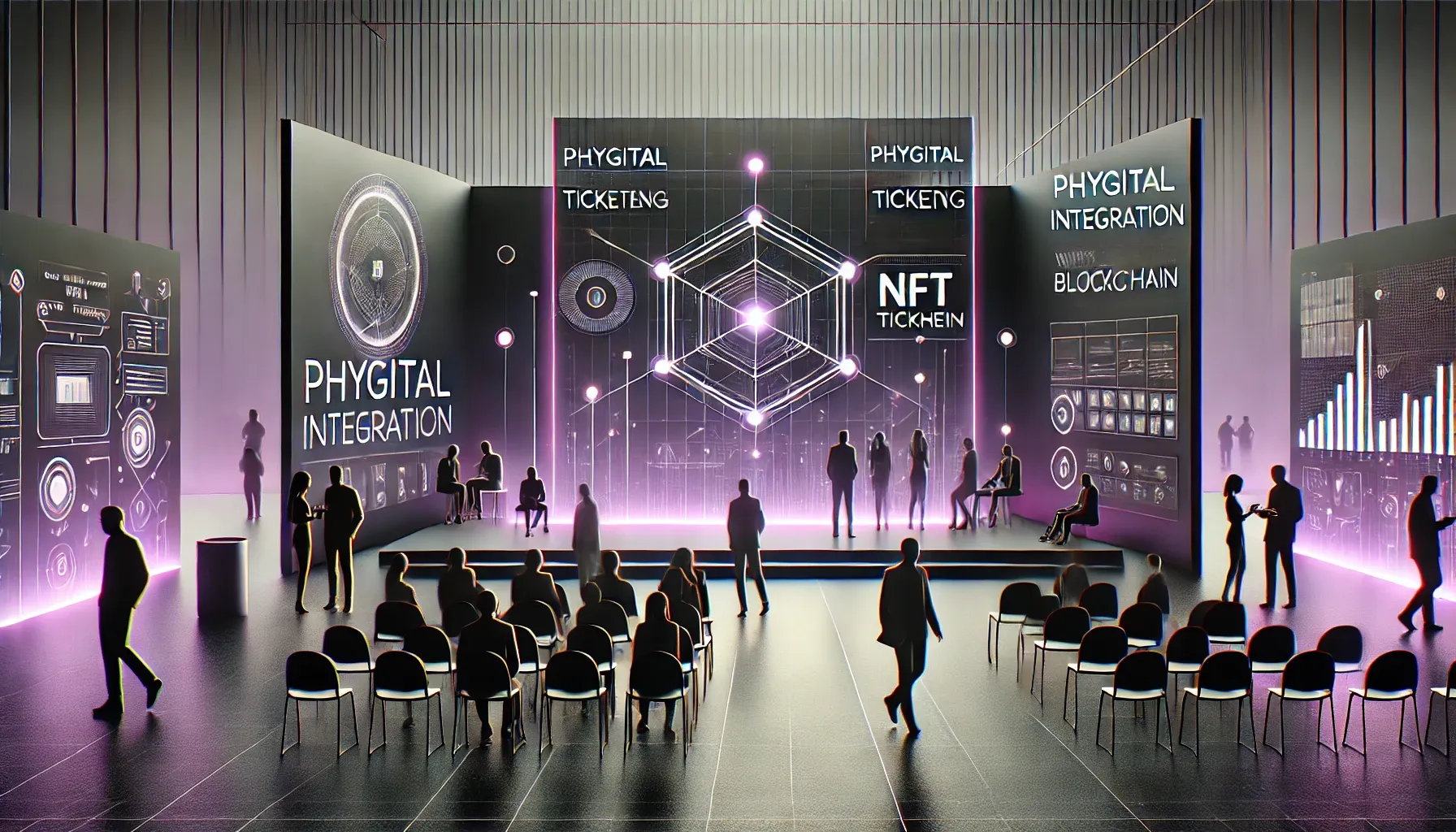
DePIN for Events: Narrative Landscape and Real Examples of Phygital Integration
By connecting between digital and physical experiences, Decentralized Physical Infrastructure Networks (DePIN) are transforming the events sector. These networks use blockchain technology to decentralize event infrastructure management, increasing audience engagement, efficiency, and security. The smooth blending of digital and physical components, known as "phygital integration," improves visitor experiences, creates new revenue streams, and streamlines event operations.
DePIN's Function in Physical Events
Through the decentralization of numerous operational components, such as ticketing and audience engagement, DePIN makes it easier to integrate physical events. Blockchain technology improves security, lowers dependency on middlemen, and guarantees transparency. Decentralized networks allow event planners to design smooth experiences in which digital resources dynamically engage with real-world event venues.
The main advantages:
- Lower expenses;
- Improved security;
- Increased participation;
- Driven by the community;
- Greater openness.
DePIN's capacity to increase engagement while reducing costs is among its most important benefits. Transactions like ticket authentication and attendee interactions stay safe and effective without requiring third-party verification. Furthermore, as users contribute to and gain from the decentralized infrastructure, community involvement is promoted.
The Benefits of Physical Integration for Events
Phygital experiences change the way spectators engage with events. Digital elements are incorporated into physical spaces to produce immersive experiences that improve audience engagement and brand interactions. Digital collectibles, real-time interactive features, and augmented reality (AR) increase engagement and open up new revenue streams.
Interactive digital displays in venues, for example, can respond to blockchain-verified credentials to offer attendees individualized experiences. Likewise, remote participants can participate in real-time event activities through virtual attendance options. The popularity of NFT-based event memorabilia serves as another example of how digital assets can add value long after an event is over.
Phygital Elements:
- Interactions with AR
- Digital collectibles
- Participation via virtual means.
- Clever ticketing
- Displays with interactive elements.
Examples of Physical Integration in Events from the Real World
Diesel's Collection, D:Verse
With the release of their "phygital" NFT wearable collection, D:Verse, the Italian fashion brand Diesel gave its holders access to VIP event invitations, airdrops, and other exclusive benefits. Diesel effectively illustrated how brands can connect digital and physical experiences by fusing blockchain-based ownership with tangible fashion items.
The Phygital Sneakers from RTFKT
NFTs, a virtual sneaker collection, were released by RTFKT, a company owned by Nike. A matching pair of real sneakers was given to buyers who purchased these NFTs within six weeks. This creative strategy set a standard for fashion brands utilizing DePIN technology by fusing ownership of digital assets with physical goods.
Phygital Sculptures by FVCKRENDER
To introduce two phygital sculptures, renowned NFT artist FVCKRENDER partnered with Avant Art. The fact that these digital works of art could be exchanged for real ones shows how the art community is adopting DePIN to offer better ownership experiences. The project demonstrated how blockchain technology might be used in event-based digital art exhibitions to verify the ownership of both virtual and physical assets.
Setting up DePIN for Events
Event planners must evaluate infrastructure requirements, select appropriate blockchain platforms, and create interactive physical experiences in order to successfully incorporate DePIN into event management. For an implementation to be smooth and compliant with the law, security and compliance issues must also be given top priority.
Action Items to Take:
- Determine the needs
- Select the platforms
- Generate experiences
- Maintain security
- Participate in the community
Decentralized event management relies heavily on community involvement. Event planners can use DePIN to give participants the ability to engage with governance models, provide digital collectibles as rewards, and implement decentralized ticketing systems that improve accessibility and trust.
Phygital Events' Future with DePIN
DePIN will become more and more important in changing audience interactions as the events sector continues to adopt blockchain-based solutions. Enhancing engagement and introducing new revenue streams are two benefits of combining digital and physical experiences. Phygital events are set to undergo constant development in the future, from AR-enhanced performances to NFT-based event memorabilia.
Businesses can seize new event management opportunities by putting DePIN into practice, guaranteeing audiences all over the world immersive, transparent, and affordable experiences.